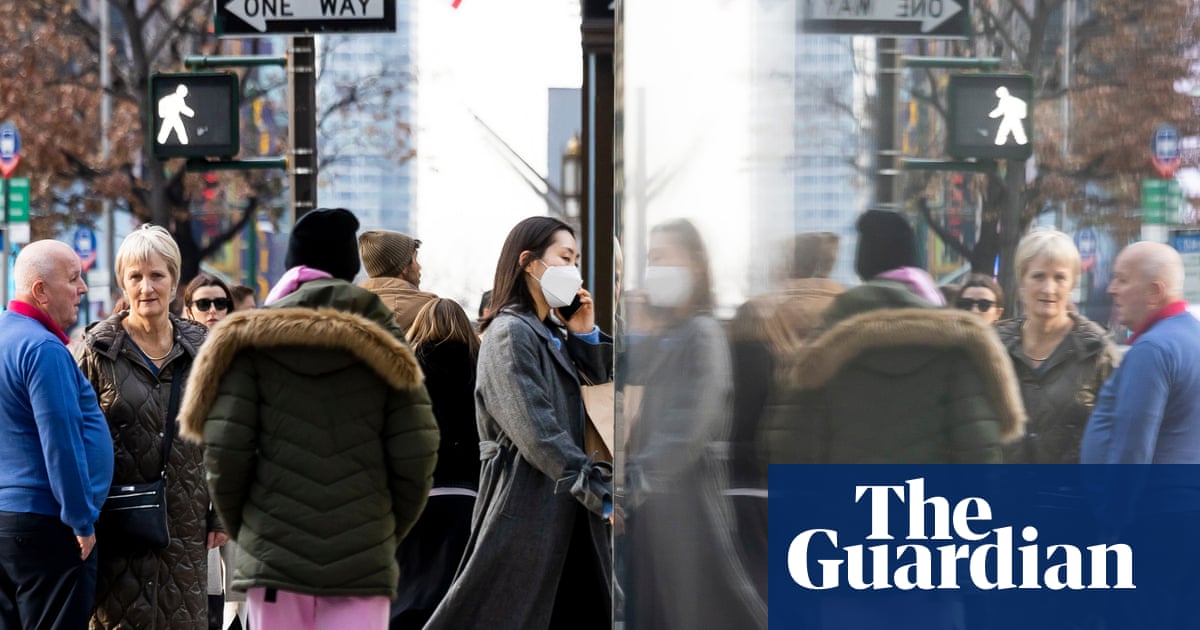Employers are pausing efforts to call remote workers back in amid a renewed push for strikes and unionization
Fri 17 Dec 2021 10.17 EST
Large US companies are now pulling back on plans to return to in-person work in light of the Omicron variant’s rapid spread across America.
Employers planning to call remote workers back into the office in the new year are now pausing those efforts, and they are wary of setting new return dates only to push them back once again in the face of continued uncertainty and risks from the pandemic.
The pandemic is also driving changes in how in-person employees work, with a renewed push for strikes and unionization across several industries where workers have frequently faced long hours and unsafe conditions.
Alphabet’s Google, Meta, Apple, Uber, Lyft, Ford, DoorDash, DocuSign and Fidelity are among the companies that have delayed returns to the office.
“It’s warranted, given the uptick that we’ve seen in cases,” Bradford Bell, director of the Center for Advanced Human Resource Studies at Cornell University’s ILR School, said. The delays also depend on where the offices are located, he said. “They’re very much looking at this on a location-by-location basis.”
Apple CEO Tim Cook told employees in a memo on Wednesday that the partial return to offices, planned for 1 February, was now pushed to a “date yet to be determined”, after several other delays over the past two years. Cook offered employees a $1,000 bonus to help improve their home offices.
Apple’s offices remain open and employees are still going in to work in countries with lower Covid rates, he said. But he specifically pointed to the global rise in cases and the emergence of the Omicron variant as a cause for concern.
Google and Uber were among the first to announce the indefinite delays in early December after planning for early January returns. Google planned to reopen offices fully no later than 10 January, but has now delayed that deadline indefinitely, though offices in several places have already reopened.
Meta was planning to open early in 2022 but is now allowing workers to come back as late as June. Janelle Gale, the company’s vice-president of human resources, said “some aren’t quite ready to come back”.
In contrast, Twitter went fully remote forever in October.
Lyft’s offices will open in February, but workers can stay remote for the entirety of next year – one of the longest delayed returns, partly due to worries over Omicron and other variants that may emerge.
Fidelity Investments said on Monday it was pausing its return-to-work plans. DocuSign has delayed its fourth attempt to return.
DoorDash’s corporate employees were going back to the office in 2022 in a hybrid approach, but now the company is waiting to see what the new plan should be.
Ford planned to return with a hybrid work model for employees working at the headquarters in January, but that is now planned for March.
Notably, hourly employees at Ford returned to in-person work in May 2020. And gig workers at Uber, Lyft, DoorDash and elsewhere have continued working through the pandemic, despite frequently feeling unsafe on the job.
About half of full-time workers surveyed in the US said their jobs could be done remotely, according to a Gallup poll. And nearly one-third of the workers said they never wanted to work in the office; the majority wanted a hybrid model.
In September, 45% of full-time employees were working remotely some or all of the time, with nine out of 10 remote workers wanting to continue that way, according to a Gallup poll.
One-third of employees who could work remotely are doing so, according to a survey from Willis Towers Watson, a global advisory firm. That number was expected to decline in 2022, before the advent of Omicron.
One of the challenges for companies is “trying to build momentum in terms of getting people back into the office”, Bell said. Companies are worried that if they open their offices before employees are ready, the momentum will stall – and they’re wary of forcing anyone back with office mandates. “So they’re waiting for the right time to really make that happen,” Bell said.
The pandemic could bring lasting changes to the ways we work – for those who have jobs that can be done remotely.
“It’s certainly a real issue” for those who can’t work remotely, Bell said. “I think that’s why we’ve seen an uptick in strikes and other things over the last several months where people are wanting – not necessarily a level playing field, but want their sacrifices recognized by their employers.”
In-person employees should continue to have support for working safely, including masking, distancing and vaccination mandates.
“All those things matter,” Bell said.
The US is experiencing record-low unemployment even as cases surge.
“It’s a fraught moment, and it’s a time where I think the power dynamic has really shifted, with the Great Resignation and the labor shortages,” Bell said. “It’s put labor in the driver’s seat,” with moves like the first Starbuck union, in Buffalo, New York, he said.
“Employees realize that they, to a certain degree, have the upper hand and so can really start bringing these issues to the forefront.”
{{topLeft}}
{{bottomLeft}}
{{topRight}}
{{bottomRight}}
{{/ticker}}
{{heading}}
{{#paragraphs}}
{{.}}
{{/paragraphs}}{{highlightedText}}
{{#choiceCards}}{{/choiceCards}}
